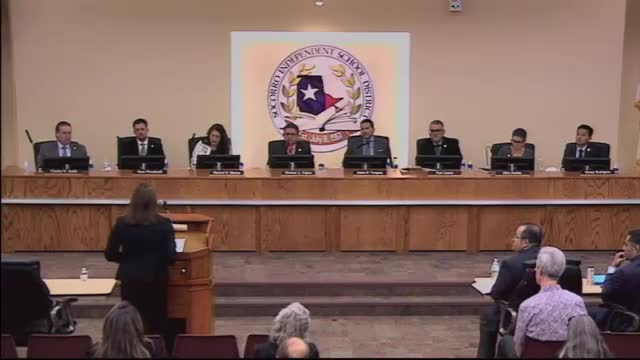Parents, advocates press Socorro ISD over early graduation and transition services for students with disabilities
Get AI-powered insights, summaries, and transcripts
Subscribe
Summary
Parents and community advocates urged the Socorro Independent School District Board of Trustees on Wednesday to stop graduating students with disabilities at age 18 when, they said, transition planning and services required by their individualized education programs remain incomplete.
Parents and community advocates urged the Socorro Independent School District Board of Trustees on Wednesday to stop graduating students with disabilities at age 18 when, they said, transition planning and services required by their IEPs remain incomplete.
Speakers at the open‑forum portion of the meeting described a pattern of students being told they have “met goals” and will graduate at 18 even when families say those students lack basic life and job skills. Several Spanish‑speaking parents asked for translation and clearer communication around IEP meetings and ARD decisions.
Those who spoke said transition plans — which parents and advocates said must be developed beginning at age 14 — have not been produced or implemented for some students, and they asked that students be allowed to remain in SISD programs through age 21. Christina Sanchez, who said she is the legal guardian of an El Dorado High School student, told the board her granddaughter has not received a required transition plan and that “the IEP reports are inconsistent with what Mia can actually do.” Sanchez asked the ARD team to allow her granddaughter to remain in the district until age 22; Interim Superintendent James Vasquez told the board he would provide an update to trustees on Sanchez’s case by Friday and that administrators were looking into it "as we speak." (Christina Sanchez, spoken comments.)
Several other speakers echoed Sanchez’s concerns. Rosie Perez of West Texas Alliance urged the board to revisit staffing and separation‑incentive decisions she said have led to reductions that affect special‑education services. Elizabeth Bos, Diana Serrano and Bonnie Bettis presented multiple examples in which parents said campuses marked students as having met goals while families believed students remained unable to perform basic hygiene, navigate community settings or hold jobs without substantial supports.
Administration and state conservators responded that the district is reviewing processes. During the meeting the Texas Education Agency’s conservators — Michael Hinojosa and Andrew Kim — described ongoing work to strengthen transcript and credit reviews and said the district is implementing or expanding Multi‑Tiered System of Supports (MTSS) to better identify and address student needs before ARD decisions lead to graduation. Kim said staff are monitoring graduation and credit‑assignment procedures and that transcript reviews are a continuing priority.
Board President Najera and interim superintendent Vasquez acknowledged the public comments and asked staff to follow up. Vasquez told Sanchez directly that the district was looking into her granddaughter’s situation and would report back to the board. Conservator Andrew Kim said the district’s continuous improvement work includes ensuring resources and training align with student needs and that he would provide more detail in coming reports.
The public speakers also asked for clearer language access. Several parents said they had not been offered interpreters or written progress reports in Spanish for IEP/ARD meetings. Trustee(s) and staff agreed to examine how the district offers translation and to explore providing parent workshops that were described as limited or selective in past practice. Several parents and speakers asked the board to ensure ARD teams document alternatives before recommending graduation for students with significant support needs.
The board took no new formal policy action on special education at the meeting; trustees directed staff and the conservatorship team to investigate individual cases raised during public comment and to report back to the board. Multiple speakers asked for both case‑level remedies and broader procedural changes to ensure that transition planning and the right to receive services through age 21 are honored when appropriate.
Closing: Trustees said they would include follow‑up on special education transition processes in future board materials and conservator reports; families who testified asked for case‑level updates and for the district to expand meaningful interpretation and documentation practices.
